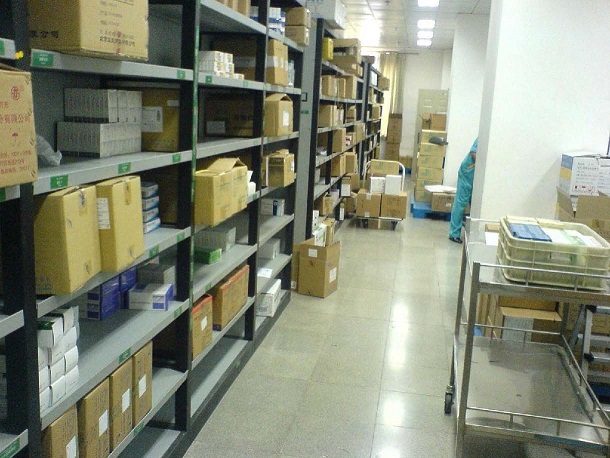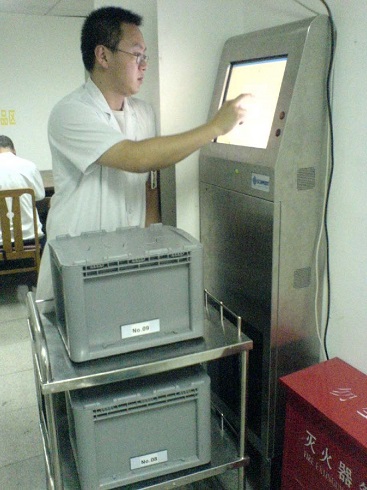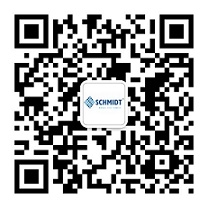Customer Background
Peking University Medical College Affiliated Hospital (Peking Union Medical College Hospital) has nearly 4,000 employees in Beijing, handling more than 1.85 million outpatient cases and 48,000 inpatient cases each year. The project responds to national special and controlled drug regulations for China, such as peony drugs, psychotropic drugs and temperature-sensitive drugs that must follow MiG monitoring during the dispensing process.
Target
The project aims to improve the traceability of the entire drug circulation process and ultimately improve the overall supervision and standards of patient safety and quality.
Solution
Schmidt has developed an EPC-compatible system based on network RFID technology and consists of three main components:
a) A fixed station with a built-in RFID reader
b) RFID handheld terminal
c) Alarm system
With this system, you can clearly monitor the delivery route, medication status, handling staff and time.


Result
The safety of the various stages of the pharmaceutical dispensing process has been improved. When the tray passes through the RFID gate, the medicine can be more clearly and accurately confirmed, and the special medicine can be better controlled. The alarm system alerts the medicine(or by email or SMS) that exceeds the scheduled delivery time. The alarm also hints at the potential risks of the medicine, such as improper handling or theft.
Improve the safety of medicines and patients
Achieve visibility and traceability at every stage of medicine delivery
Simplify workflow
Provide data traceability error sources


Shanghai Beijing Guangzhou
Shenzhen Xiamen Chengdu
Hong Kong Taiwan Korea Thailand
Singapore Malaysia Philippines